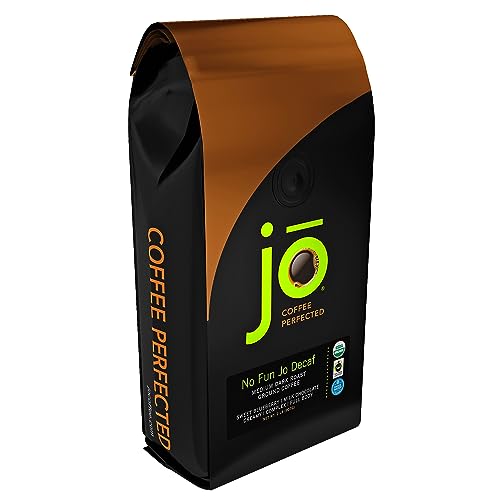Decaffeinated coffee, often known as decaf, is a saving grace for many who love the rich flavor of coffee but prefer to keep their caffeine intake in check. But finding a high-quality decaf that truly satisfies your taste buds can be a daunting task. Furthermore, many people are now preferring organic options, making the search even more specific.
In light of these factors, we’ve compiled a list of five remarkable organic decaf coffees you should consider. Let’s dive into these options, but not before shedding light on the intricacies of decaf coffee, its production process, and its unique attributes.

Decaf Coffee Wonders: The Best Picks
By now, you’re likely curious about which organic decaf coffee you should add to your shopping list. So, without further delay, here’s our recommended list, carefully crafted to ensure you’ll enjoy your next cup of joe.
Mt. Whitney Swiss Water Decaf Coffee from Peru
Peru’s Northern Highlands, elevated at 3000 feet above sea level, is the home of this fantastic coffee. It’s medium-roasted, slightly acidic, and boasts a balanced tone and a full-bodied flavor, all thanks to the Swiss Water method for decaffeination. Plus, it lacks the bitter aftertaste many decaf options carry.
Pros
- Balanced flavor with a clean, non-bitter finish
- Smooth and reminiscent of Sumatra coffees
- Impressive taste
Cons
- Confusing product description; states “GROUND,” but the product image shows “WHOLE BEAN”
Kicking Horse Coffee, Decaf, Swiss Water Process, Dark Roast
Kicking Horse has a reputation for using only the finest Arabica beans for all their coffee. Their dark roast decaf boasts hints of roasted hazelnuts and a chocolaty body. As a brand committed to sustainability, they actively support land conservation efforts in the Canadian Rockies.
Pros
- Oil-rich, making it suitable for a French Press
- Excellent taste with no sour or acidic undertones
- Smooth, delicious, and has a great aroma
Cons
- On the expensive side
NO FUN JO DECAF: 2 lb, Organic Decaf Ground Coffee, Swiss Water Process
If you’re on the hunt for a fully certified medium roast coffee, NO FUN JO won’t let you down. It ticks all the boxes with its Fairtrade, USDA, kosher, and Swiss Water Process certifications. Its complex flavor profile includes hints of chocolate and blueberry.
Pros
- Exceptional decaf coffee
- Pleasing taste
- Reasonably priced compared to others
Cons
- Slightly acidic
Cafe Don Pablo 2LB Decaf Swiss Water Process
This coffee guarantees no chemicals in your cup, thanks to the Swiss Water Process. All the beans are single-origin and grown on GMO-free Colombian volcanic soil. It’s a medium roast coffee with a smooth finish, low acidity, and a full-bodied flavor with notes of caramel, cocoa, and a hint of citrus.
Fresh Roasted Coffee LLC, Organic Sumatra Decaf
Crafted from 100% arabica beans, this medium roast decaf coffee impresses with its bold body and earthy, creamy chocolate notes. You can choose between Peruvian or Colombian flavors.
Pros
- Tastes and smells fantastic
- Excellent decaf whole-bean coffee
- Smooth decaf with no bitterness
Cons
- May not be strong enough for those who prefer a robust coffee
Understanding Decaf Coffee
Decaf coffee is a version of your beloved brew with minimal caffeine content. Caffeine is removed from coffee beans either naturally or chemically before roasting. Here are some methods to achieve this:
- Roselius Process: This obsolete method treated beans with saltwater and benzene, which is no longer used due to its harmful effects.
- Carbon Dioxide Process: Beans are soaked in liquid carbon dioxide at high pressure and then passed through charcoal filters.
- Industrial Process: Beans are treated with Ethyl Acetate or Methylene Chloride, a method preferred for its affordability and speed.
- Swiss Water Method: This method leverages caffeine solubility and osmosis to remove caffeine from green coffee beans without compromising flavor.
Organic decaf coffee is decaffeinated coffee free of artificial or synthetic substances. It comes from non-GMO crops, and no chemicals are added during processing or packaging.
When talking about decaffeination methods, the Swiss Water Process and the Carbon Dioxide Process are considered organic. The Industrial Process can be organic if Ethyl Acetate, derived from natural sources, is used.
The Delectable World of Organic Decaf Coffee
Organic decaf coffee offers a great alternative for coffee enthusiasts who, due to various reasons, can’t enjoy their usual caffeinated brew. This choice allows them to maintain a healthy lifestyle while still relishing the flavors of their favorite drink. If processed correctly, this coffee can be rich in vitamins like B2 (Riboflavin), B3 (Niacin), and B5 (Pantothenic Acid).
The benefits of organic decaf coffee are numerous. Besides helping you steer clear of caffeine-related side effects, organic decaf coffee also promotes environmentally friendly practices. However, some studies indicate that decaf coffee may raise certain cholesterol levels, possibly due to the higher fat content of the beans typically used for decaf.
In conclusion, if you value organically produced products devoid of extra chemicals or artificial flavors, switching to an organic decaf coffee processed using the Swiss Water Method could be your ideal choice.

Disclaimer: This post contains affiliate links, which means I may receive a small commission, at no extra cost to you, if you make a purchase using these links. Remember to support us by purchasing through the Amazon/Walmart/Impact Radius links provided. Last update on 2024-05-08 / Affiliate links / Images from Amazon Product Advertising API
Disclosure: No compensation or free products were received in exchange for writing this review.

Editorial Staff
The editorial staff at Crazy Coffee Crave is a team of coffee enthusiasts & Baristas who enjoy the one thing we all think about as soon as we get up in the morning. Trusted by thousands of readers worldwide.











